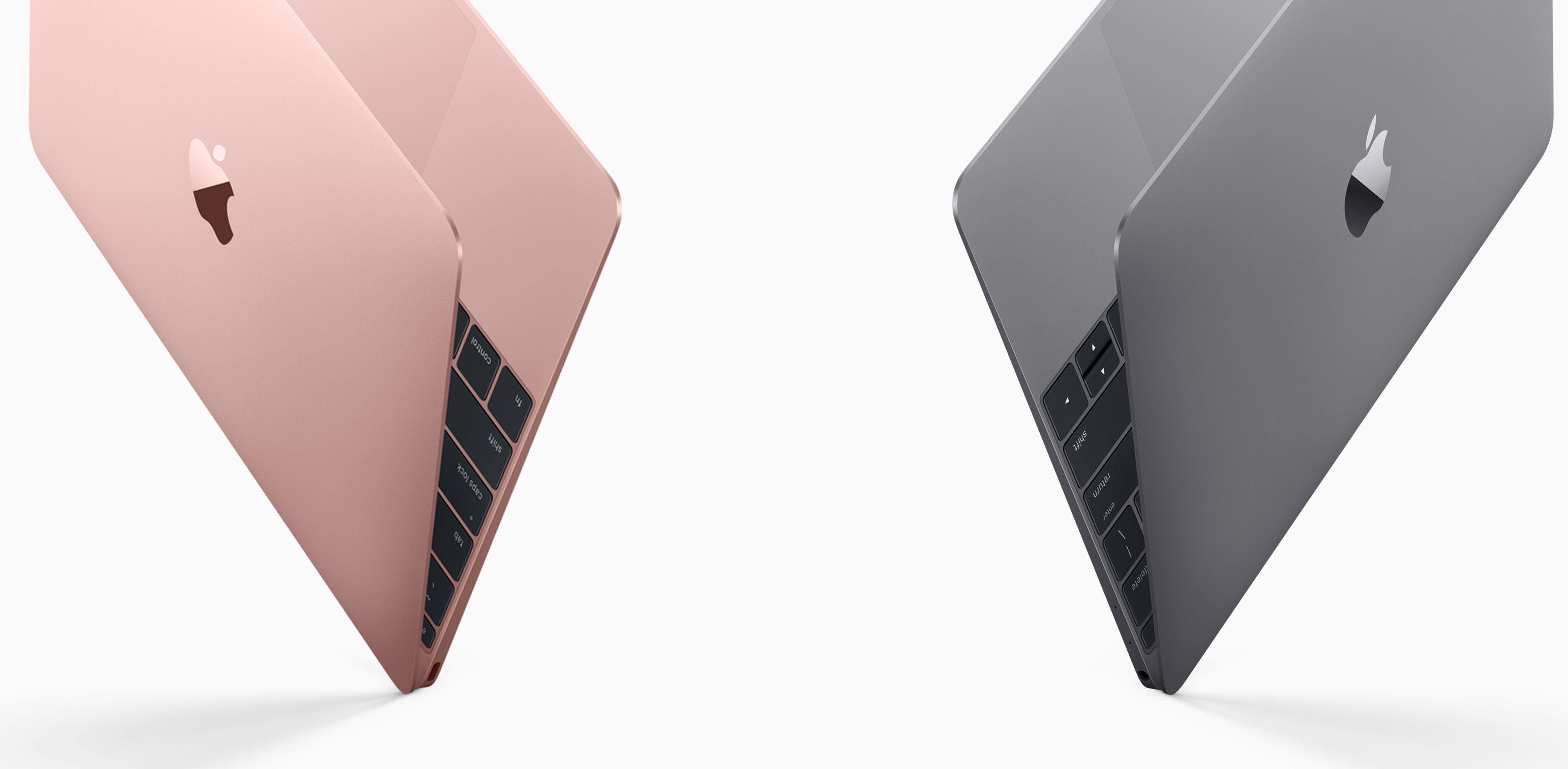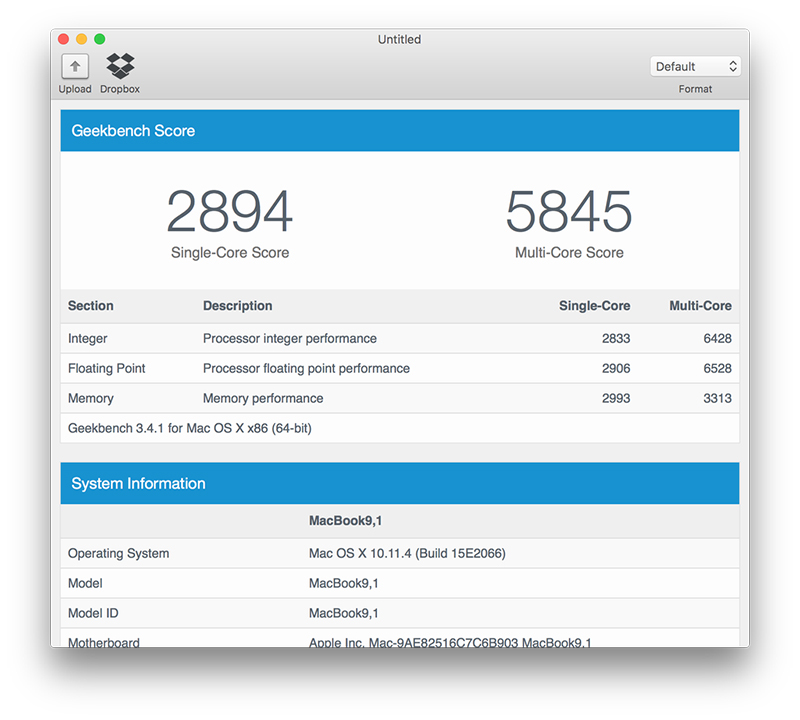Apple today announced a second-generation twelve-inch MacBook which brings speed increases across the board thanks to the use of Intel’s latest Skylake chip platform, PCIe-based flash storage and a speedier 1,866MHz RAM.
The Verge took the new machines briefly for a spin. Having put the new MacBook through its paces in Primate Labs’ $0.99 Geekbench 3 benchmarking app to measure the performance of the new Intel CPU and using the free Blackmagic Disk Speed Test app for benchmarking disk I/O operations, the publication was able to determine just how performant the updated flash storage and Intel’s new Skylake CPU are.
Apple lent The Verge a 1.2Ghz Intel Core m5 MacBook to test.
TL;DR: a modest CPU improvement may not be enough to seal the deal, but folks who work with large sets of data—such as 3D designers, video editors and others—will find an overhauled solid state storage worth upgrading.
Revamped solid state storage
Disk-write speeds using Blackmagic are faster between 80 to 90 percent compared to the original twelve-inch MacBook model. Disk-read speeds look like “smaller, incremental improvements”. Overall, “the thing feels about 25 percent faster to me,” writes author Dieter Bohn.
Disk-write speeds are especially important as they can greatly speed up memory swapping operations that occur frequently when you multitask a lot and your RAM is fully utilized. Apple says the new machine utilizes PCIe-based flash storage that Apple first started using in the MacBook Air.
More modest CPU improvement
Intel’s new Skylake architecture comes to the MacBook in an M-class processor which was designed for low power consumption rather than for great speeds. Geekbench 3 tests have pegged the speed improvements on raw processor operations at around 20 percent, which isn’t a lot but that’s just a benchmark.
Christina Warren tweeted out 64-bit Geekbench results that paint a more accurate picture: in her tests, a 1.2GHz CPU inside her 12-inch MacBook came in about fifteen to eighteen percent faster than last year’s equivalent model.
The new MacBook scored 2,894 on the single-core tests and has a multi-core score of 5,845. By comparison, last year’s 1.2GHz model scored 2,437 on the single-core benchmark and 5,049 on the multi-core test. The scores were confirmed by Primate Labs founder John Poole.
Curiously, Apple did not divulge how faster the new CPU is beyond stating that the new Intel HD Graphics 515 delivers up to 25 percent faster performance and that the lineup has been upgraded with faster 1,866-megahertz memory.
Summing up
Real-life effects of a faster processor—especially coupled with a lot faster SSD—will become readily observable in high load situations when the CPU is strained, like opening dozens of tabs in a browser, editing multiple video streams and more.
“Benchmarks and just a couple minutes of use are one thing, while actual extended use is quite another,” the article concludes. “My hunch is that if you were worried that the last MacBook was too underpowered for you, the new MacBook will only assuage your concerns by, well, 25 percent or so.”
Source: The Verge

